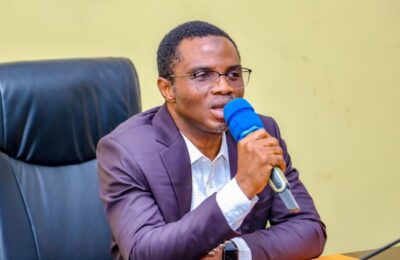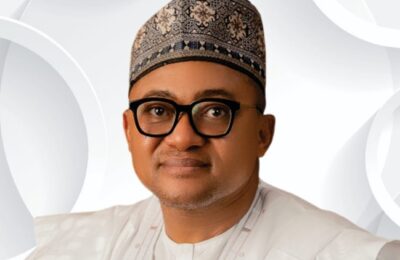A country where children eat hope instead of food is already poor — even if its currency gets a new design.
In the heartbeat of Africa, Nigeria, a sound of silent weeping travels from city to village, from slums to hinterlands — the cry of the child whose stomach has memorized hunger, and whose eyes have forgotten what joy looks like. This is not just about the economy; it is about the soul of a nation. The moral thermometer of any society is how it treats its children. And if we’re being honest, Nigeria has broken its promise to the little ones.
The time has come — not just for policies and programmes — but for a deep, urgent, spiritual rebirth in how we see, treat, and protect children in Nigeria. Abolishing child poverty is not a favour; it is justice delayed.
“Children are not a distraction from more important work. They are the most important work.” — C.S. Lewis
In many corners of Nigeria, children go to bed not only without dinner, but without dreams. Poverty has robbed them of imagination. It is one thing to lack bread; it is another to lose belief. When a 10-year-old in Maiduguri carries blocks for ₦500 a day while nursing malaria, and a 7-year-old in Onitsha hawks groundnuts at midnight, we must ask ourselves: what happened to our national conscience?
Igala people say, “E chewn ke eyo eju one meji arakwu iko kate, alu n neke kola n” — it means “when two eyes cry at once, the mouth cannot talk.” That’s Nigeria today. The poor cry. The children cry. And the government keeps silent.
This is not just a northern problem or a southern shame. From the Almajiri child in Kano to the displaced child in Benue, from the orphan in Port Harcourt to the street boy in Lagos, child poverty wears many faces but sings the same sorrowful song: “I am hungry, I am forgotten, I am Nigeria.”
Let’s stop hiding behind GDP figures and political speeches. The real poverty is in the streets, the schools without roofs, the boreholes that don’t run, and the hospitals with no paracetamol. The real poverty is the mother giving dirty water to her baby because that’s all she has. The real poverty is when a government releases ₦10 billion for elections but cannot feed 10,000 hungry children in IDP camps.
We must abolish child poverty the way a village drives out a snake — with seriousness and urgency. A community that forgets its children digs its own grave.
“You cannot love God whom you have not seen if you cannot love your neighbor’s child you see every day.” — Pastor Chris Oyakhilome
It is shameful that in 2025, over 70% of Nigerian children still live below the poverty line. Malnutrition is not just killing their bodies; it is murdering their future. We talk of development, but how do you build a skyscraper on broken bones?
Education is supposed to be the great equalizer. But what happens when a hungry child cannot even concentrate in class? Free education without free food is like giving someone a car with no fuel.
A nation that raises its children in poverty will reap violence, not victory. The next generation of kidnappers, terrorists, and drug lords are being baptized in the pool of child poverty. Let’s not be surprised tomorrow at what we failed to fix today.
“Wickedness to children is a spiritual crime with generational consequences.” These were the piercing words of the late Prophet TB Joshua. He believed strongly that national transformation must begin with the child — feed them, educate them, empower them spiritually, and the nation will flourish like a watered garden.
But what shall we say of the deeper darkness — the ritual killing of children?
It is a beautiful thing to have children, but even more glorious when they are Nigerians — full of fire, laughter, dreams, and spiritual strength. Yet it becomes a national curse when these precious gifts are sold on the altars of greed, fame, and wicked blood money. Who taught us to kill our own future for the momentary shine of gold? Who whispered to our youth that destiny is in the blood of an innocent child?
How did we fall so low that children are no longer safe in churches, schools, or their own homes? From shrines in Ogun to lonely bushes in Enugu, children are vanishing into thin air — sacrificed not to God, but to the god of mammon.
There is no blessing in blood. No favour in the funeral of an infant. No mansion worth the price of a mutilated toddler. And yet, we move on like nothing is happening. But heaven sees. And earth will answer.
The real spiritual warfare in Nigeria is not about witches or wizards — it is about the battle for the soul of our children.
“He who causes one of these little ones to stumble — it were better for him that a millstone be hung around his neck and he be cast into the sea.” — Jesus Christ (Mark 9:42)
Sadly, Nigeria is building prisons faster than schools. We invest more in bullets than in blackboards. Even the so-called social welfare programs are often hijacked by corrupt middlemen who see hungry children as statistics for contracts, not as souls needing rescue.
It starts with will — not just political, but moral and spiritual will.
We need a Child Poverty and Protection Commission — not as another Abuja white elephant, but as a grassroots-powered, result-driven national movement. Every state must declare a state of emergency on child hunger, child safety, and child welfare.
Let churches open free breakfast schools. Let mosques run after-school feeding programs. Let traditional rulers use their palaces not for chieftaincy titles alone, but as food banks and shelters. Let every community build “Child Protection Watch Groups” where suspicious activities are reported, and every missing child is taken seriously.
It is time for politicians to stop building mansions and start building childhoods.
“If we build strong children, we won’t have to repair broken men.” — Frederick Douglass
Nigeria is not poor. What we lack is love. What we suffer is greed. What we bury is mercy. But it is not too late to rewrite this story.
The same way God remembers the cry of Rachel for her children, the time has come for Nigeria to hear the cry of its innocent. “A woman may forget her suckling child,” says the Scripture, “but God will not forget.” Yet we — a people claiming to be under God — have forgotten the suckling, the orphaned, the slain. We build mega churches but neglect mini stomachs. We speak in tongues but not in empathy. We shout revival, but forget the child whose destiny was cut short behind a locked door by a trusted uncle.
Let this be the last generation of Nigerian children who beg for food — or who become food for rituals. Let it be said that in 2025, a new Nigeria emerged — one that saw its children not as burdens but as blessings.
Igala elders teach that “The child you don’t carry today may be the one who forgets you tomorrow.” But if we carry them now, they will carry the nation in the years to come.
We must abolish child poverty and end child ritual killings the same way we uproot weeds from a cassava farm — decisively, thoroughly, and with unity of hands. This is not the work of NGOs alone. It is your work. It is my work. It is our covenant responsibility.
To every child reading this through the window of hardship: Hold on. Help is coming. And to every leader sleeping on duty, hear the voice of the street, the cry of the hungry, and the judgment of heaven. You will not escape it.
In the name of God, of mercy, and of all that is just — Nigeria, end child poverty and ritual killings now.
– Inah Boniface Ocholi writes from Ayah – Igalamela/Odolu LGA, Kogi state.
08152094428 (SMS Only)




